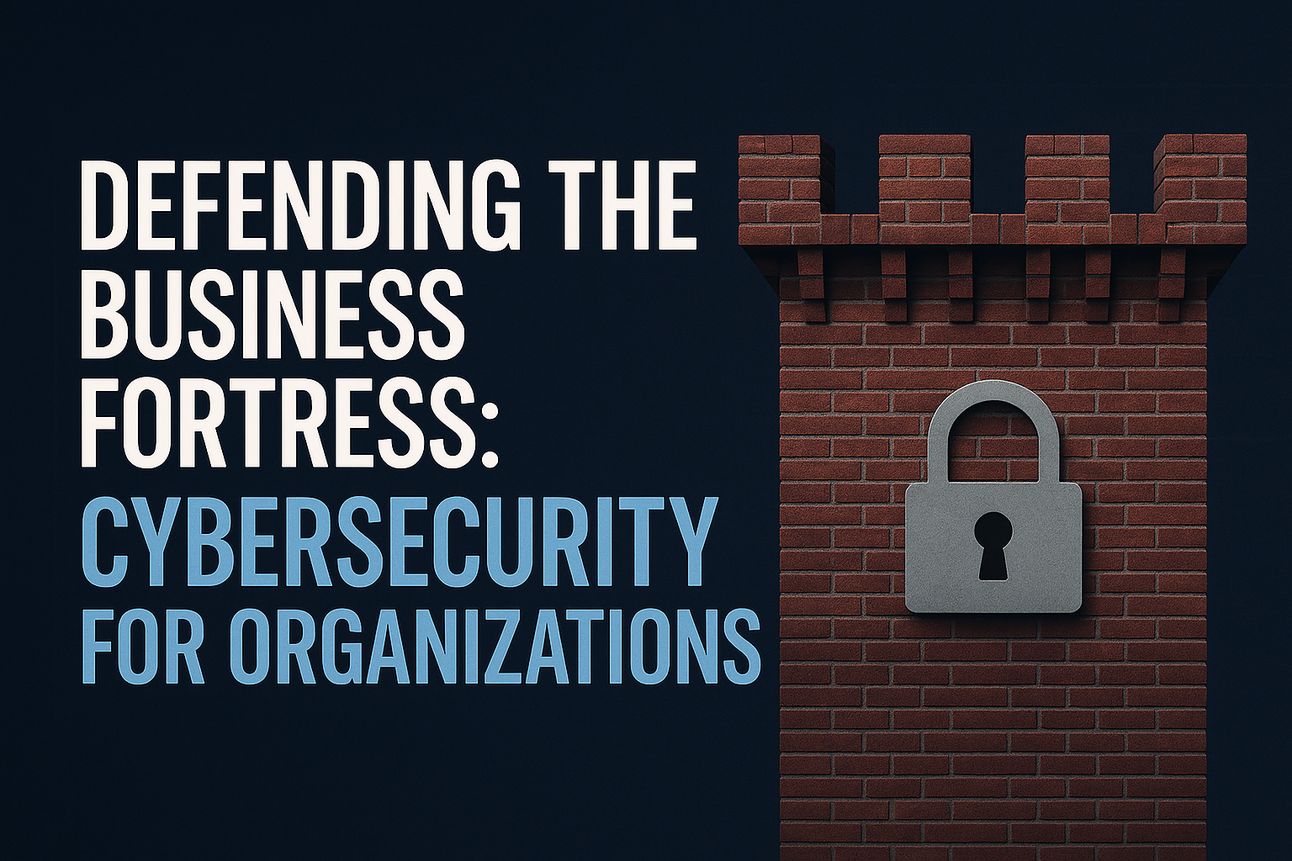In today's digitally dependent economy, cybersecurity isn't just a technical concern—it's a business imperative. Protecting your systems, data, and people from cyber threats is critical for survival, whether you're a small startup or a global enterprise. In this guide, we'll explore the unique challenges businesses face in cybersecurity, examine the most common threats, and offer best practices for defending your organization like a digital fortress.
The Unique Cybersecurity Challenges Businesses Face
Unlike individuals, businesses manage expansive digital infrastructures, large volumes of sensitive data, and diverse employee behaviors, making them high-value targets for cybercriminals.
Vast Data Holdings: Businesses, especially in healthcare, finance, and retail, store sensitive customer data that hackers can sell or exploit for fraud.
Complex Networks: Organizations with hundreds or thousands of endpoints—from laptops to cloud servers—have numerous potential vulnerabilities.
Human Error: Employees can unintentionally become the weakest link, falling for phishing scams or using poor password practices.
Regulatory Compliance: Many businesses must comply with stringent regulations like GDPR, HIPAA, or PCI DSS. Failing to meet these standards risks hefty fines and legal consequences.
Top Cyber Threats Targeting Businesses
Cyberattacks are growing in sophistication, and businesses must be aware of the most prevalent threats:
Phishing - Attackers send fraudulent emails pretending to be trusted sources to steal login credentials or install malware.
Ransomware - Cybercriminals encrypt organizational data and demand ransom, often in cryptocurrency, to restore access, causing operational standstills.
Insider Threats - Malicious or careless employees may misuse access privileges or inadvertently leak sensitive information.
Distributed Denial of Service (DDoS) - These attacks overwhelm business websites with traffic, causing disruptions and financial losses.
Supply Chain Attacks - Hackers exploit vulnerabilities in third-party vendors to indirectly gain access to your systems.
Cybersecurity Best Practices for Organizations
To mitigate risks, businesses must adopt proactive and comprehensive cybersecurity strategies:
Enforce Strong Password Policies - Require complex, regularly updated passwords and enable multi-factor authentication (MFA) across systems.
Keep Software Up to Date - Patch management is vital. Regularly update all devices, applications, and firmware with the latest security fixes.
Train Employees - Offer regular training on cybersecurity awareness, phishing simulations, and secure data handling practices.
Use Encryption and Firewalls - Encrypt sensitive data at rest and in transit. Maintain robust firewall configurations to block unauthorized access.
Back Up Data - Create secure, encrypted backups of critical data. Store offsite or in the cloud and test recovery procedures regularly.
Develop an Incident Response Plan - Develop a documented plan that outlines steps to take during a breach, including containment, communication, and recovery protocols.
Creating a Culture of Cybersecurity
Security is everyone's responsibility, not just the IT department's. To embed cybersecurity into your organizational DNA:
Align Cybersecurity with Core Values
Make cybersecurity a company-wide priority, emphasized during onboarding and reinforced in all departments.
Lead by Example
Executives and managers should model secure behavior and participate in training initiatives.
Encourage Open Communication
Foster a non-punitive environment where employees feel safe reporting suspicious activity or errors.
Provide Continuous Education
Offer regular updates, resources, and workshops to help employees stay ahead of evolving threats.
Compliance: Meeting Legal and Regulatory Requirements
For many industries, cybersecurity isn't optional—it's legally mandated:
GDPR (Europe) - Regulates the data processing of EU citizens' personal information.
HIPAA (U.S. Healthcare) - Governs the protection of patient data.
PCI DSS - Applies to businesses that process credit card transactions.
Industry-Specific Standards - Consult legal experts to ensure full compliance with sector-specific regulations.
Non-compliance can result in significant legal and financial penalties, not to mention reputational damage.
Looking Ahead
Cybersecurity for businesses is not a "set it and forget it" task—it's a continuous journey. As threats evolve, so must your defenses. With strong protocols, employee awareness, and a culture of vigilance, your organization can minimize risk and operate with greater confidence.
